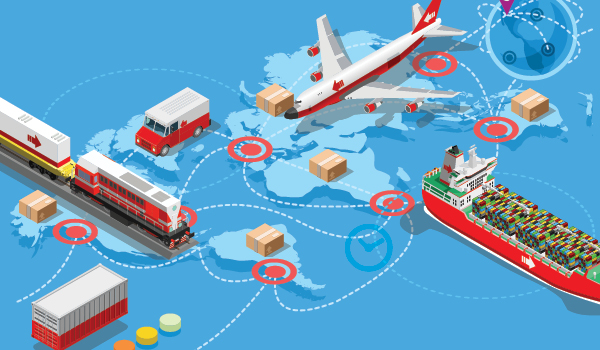
September 17, 2019
For small and mid-sized companies, selling globally can be daunting. Often, perceived risks cause companies to hesitate, but most can be reasonably mitigated. The biggest risk may be simply not knowing what to anticipate when conducting business. These blind spots typically involve considerations which aren’t top-of-mind domestically. With a bit of awareness and preparation companies can inexpensively mitigate many of the risks.
As Q4 approaches and companies consider exporting as part of their 2020 growth strategies, it is a good time to review the following three commonly overlooked risks associated with international sales efforts:
Duty of Care is the term for a company’s obligation to take reasonable steps to ensure the well-being of their employees when traveling for business. It can be interpreted to encompass various elements including personal security, safety, health, comfort and contingency planning.
Examples of these obligations include ensuring employees are properly immunized for their destinations, providing appropriate international medical insurance, and developing contingency plans for circumstances which might leave employees at risk while traveling.
While you might already rely on workers’ compensation and health insurance policies to cover employees traveling domestically, often there are limitations on coverage for employees. There are insurance plan options to address these gaps. These include international medical care and evacuation/repatriation policies, as well as security coverage to assist in case of natural disasters and political unrest. Some companies may consider Foreign Voluntary Workers Comp (FVWC) as well as to cover work related accidents which occur overseas.
While Duty of Care is often discussed in the context of international business travel, it is worth keeping in mind domestically as well. Sensible policies can help prevent expensive complications later.
When you ship products internationally it is important to understand who owns them at various points in transit, as well as who is responsible for insuring against any potential loss.
Ownership is clarified with the incorporation of International Chamber of Commerce (ICC) Incoterms which are scheduled for their next revision in 2020. Incoterms clearly identify the point at which ownership (and risk of loss) are transferred. Common examples of transfer spots include: the seller’s loading dock, when the item is loaded onto a ship, and when it is delivered.
Interestingly most terms do not specifically address the responsibility for insurance. While it might seem intuitive to leave that to the owner, that can lead to complications. For instance, when products are sold on credit terms (the buyer doesn’t pay until sometime after shipment) and product is lost or damaged in transit, there is an increased risk of default. If the buyer owned the goods but failed to adequately insure the product or account for deductibles, they might refuse to pay even though they acknowledge ownership.
Sellers do have a couple of options:
Paying bribes is something that makes for entertaining movies, not routine business practice, and most companies would never intentionally engage in corrupt activity when conducting business.
It is critical t to be fully aware of all laws to ensure compliance. The U.S. Foreign Corrupt Practices Act (FCPA) includes provisions which might catch you by surprise. The definition of corruption, for instance, involves more than actually paying bribes and includes conspiracy, or simply knowing that something unlawful might be occurring. The business practice of gift giving which is common in some cultures may also create FCPA exposure in certain circumstances.
Additionally, many companies are surprised and alarmed to learn that their directors and officers may be personally, criminally liable for actions taken by third-parties acting on their behalf, but without their knowledge or approval.
Therefore, simply allowing local sales agents to “get deals done the way they do it” locally or relying on local customs agents who might agree to small payments to avoid unjustified delays, could create legal repercussions for you at home. And as momentum grows globally against endemic corruption, more and more countries are enforcing local regulations which have lain dormant. Additionally, you also risk being blacklisted and facing local repercussions.
Your professional advisors can help you easily mitigate each of these risks. This means proactively discussing your international business activity with them and knowing the potential risks you need to run by them for advice.
The “risks” of international business aren’t normally higher than domestic business, they’re just unfamiliar. A bit of research and awareness goes a long way to avoiding unhappy surprises later.
These tips are provided for awareness only. Please be sure to seek recommendations from your professional advisors on how these, and other risks may impact you and your company specifically.

Ed Marsh
Ed Marsh, Exporting Advisor to American Express
Ed Marsh has in-depth experience on a number of continents, in various capacities and industries. He founded and managed a start-up in India; successfully built channels throughout Latin America; leveraged his German birth and marriage to a German national in his extensive work in Western Europe and has deep cultural experience with Vietnam. Ed’s B2B and B2G pan-global experience has involved a variety of products and services including capital equipment, industrial automation, distribution services and homeland security and defense technology. He is a Founder and Principle at Consilium Global Business Advisors.
https://www.americanexpress.com/en-us/business/trends-and-insights/
Scott Ellyson, CEO of East West Manufacturing, brings decades of global manufacturing and supply chain leadership to the conversation. In this episode, he shares practical insights on scaling operations, navigating complexity, and building resilient manufacturing networks in an increasingly connected world.